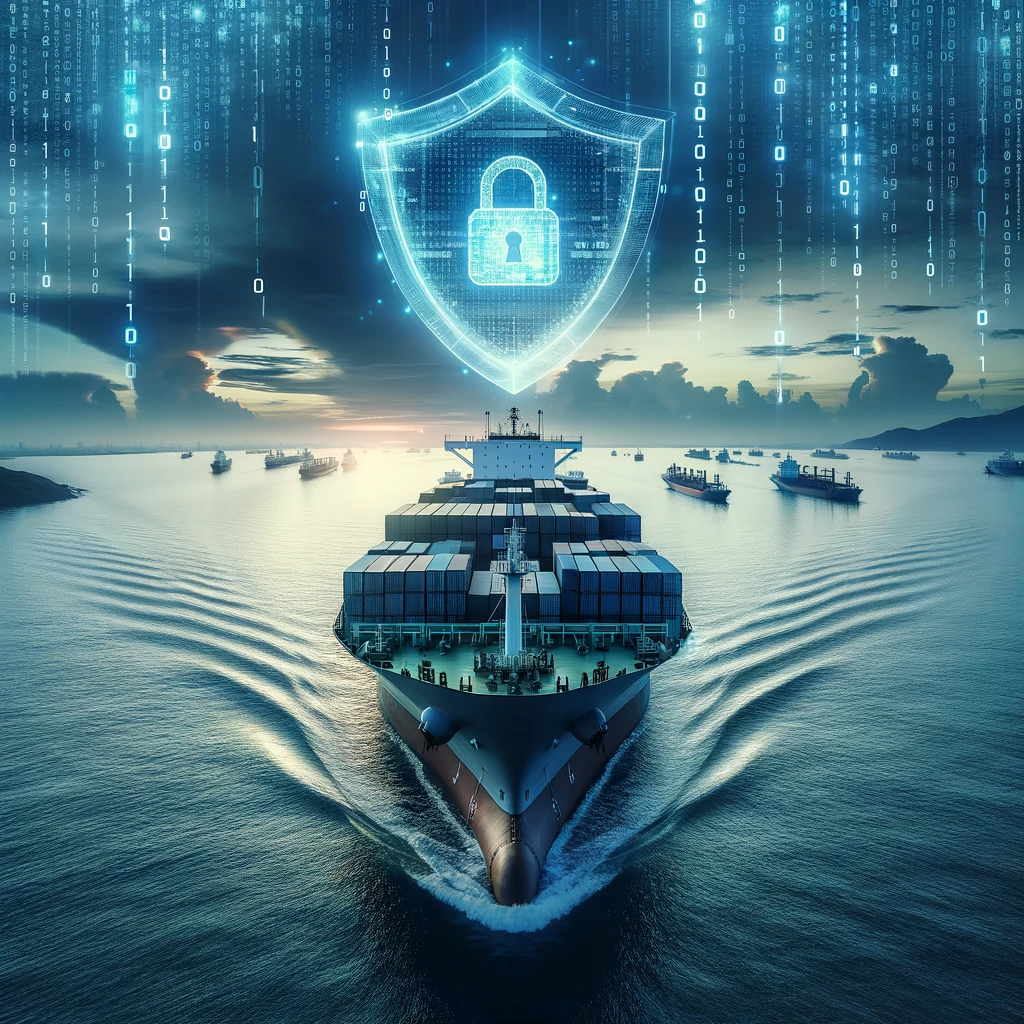As the maritime industry increasingly incorporates digital technologies for operational efficiency and global trade, the imperative for robust cybersecurity measures has never been more critical. The digital transformation within the maritime sector, while offering numerous benefits, also opens the door to a range of cyber vulnerabilities. This article explores the essential role of cybersecurity in maritime operations, highlighting its importance in safeguarding lives, ensuring operational continuity, and protecting the global supply chain.
Cybersecurity in Maritime: A Pillar of Global Trade The maritime sector is instrumental in facilitating over 80% of world trade, underscoring its significance in the global economy. However, the adoption of digital technologies, from automated ports to advanced navigation systems, brings with it the shadow of cyber threats. These threats, ranging from data breaches to operational disruptions, pose significant risks that can lead to dire consequences.
Ensuring Safety and Security at Sea
- Safety of Life at Sea Safety remains the paramount concern in maritime operations. Cyber threats that compromise navigation and engine control systems can result in accidents, posing severe risks to crew and passenger safety. Implementing stringent cybersecurity measures is vital to prevent such incidents, emphasizing the sector’s commitment to safety.
- Cargo Security and Supply Chain Integrity The maritime industry’s role in cargo transport is critical for maintaining the global supply chain. Cyber attacks targeting cargo systems can disrupt trade, leading to substantial economic losses. Therefore, cybersecurity is essential in protecting cargo and ensuring the seamless operation of the supply chain.
- Operational Continuity Digital systems play a crucial role in coordinating maritime operations. A cyber attack can severely disrupt these operations, leading to logistical challenges and increased costs. Cybersecurity measures are crucial for maintaining operational continuity and efficiency in maritime logistics.
- Compliance with International Regulations The International Maritime Organization (IMO) and other regulatory bodies have recognized the importance of cybersecurity, incorporating it into their guidelines. Adherence to these guidelines is not just about legal compliance but also demonstrates a company’s dedication to secure and responsible operations.
- Reputation and Competitive Edge In today’s digital age, a strong cybersecurity posture can significantly enhance a company’s reputation and competitive advantage. Companies that proactively address cybersecurity concerns are more likely to be trusted by clients and stakeholders, leading to business growth and success.
- National Security and Infrastructure Protection The strategic importance of the maritime sector to national security cannot be overstated. Cyber attacks on maritime assets can have far-reaching implications, underscoring the need for comprehensive cybersecurity strategies to protect these critical infrastructures.
Cybersecurity is not just an operational requirement but a strategic necessity for the maritime industry. As the sector navigates the challenges of digitalization, the focus on cybersecurity must be intensified to protect against evolving threats. Collaboration across the industry and adherence to international guidelines are essential for building a resilient maritime cyber infrastructure. Ensuring the cybersecurity of maritime operations is fundamental to the safety, efficiency, and reliability of global trade.

